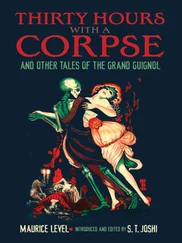Генри Джеймс - Lady Barbarina, The Siege of London, An International Episode, and Other Tales
Здесь есть возможность читать онлайн «Генри Джеймс - Lady Barbarina, The Siege of London, An International Episode, and Other Tales» — ознакомительный отрывок электронной книги совершенно бесплатно, а после прочтения отрывка купить полную версию. В некоторых случаях можно слушать аудио, скачать через торрент в формате fb2 и присутствует краткое содержание. Жанр: foreign_prose, literature_19, foreign_antique, на английском языке. Описание произведения, (предисловие) а так же отзывы посетителей доступны на портале библиотеки ЛибКат.
- Название:Lady Barbarina, The Siege of London, An International Episode, and Other Tales
- Автор:
- Жанр:
- Год:неизвестен
- ISBN:нет данных
- Рейтинг книги:4 / 5. Голосов: 1
-
Избранное:Добавить в избранное
- Отзывы:
-
Ваша оценка:
- 80
- 1
- 2
- 3
- 4
- 5
Lady Barbarina, The Siege of London, An International Episode, and Other Tales: краткое содержание, описание и аннотация
Предлагаем к чтению аннотацию, описание, краткое содержание или предисловие (зависит от того, что написал сам автор книги «Lady Barbarina, The Siege of London, An International Episode, and Other Tales»). Если вы не нашли необходимую информацию о книге — напишите в комментариях, мы постараемся отыскать её.
Lady Barbarina, The Siege of London, An International Episode, and Other Tales — читать онлайн ознакомительный отрывок
Ниже представлен текст книги, разбитый по страницам. Система сохранения места последней прочитанной страницы, позволяет с удобством читать онлайн бесплатно книгу «Lady Barbarina, The Siege of London, An International Episode, and Other Tales», без необходимости каждый раз заново искать на чём Вы остановились. Поставьте закладку, и сможете в любой момент перейти на страницу, на которой закончили чтение.
Интервал:
Закладка:
I plead a blank of memory as to the origin of “The Siege of London”; I get no nearer to the birth of the idea than by recalling a certain agitation of the spirit, a lively irritation of the temper, under which, one evening early in the autumn of 1877, that is more than thirty years ago, I walked away from the close of a performance at the Théâtre Français. The play had been “Le Demi-Monde” of the younger Dumas, a masterpiece which I had not heard for the first time, but a particular feature of which on this occasion more than ever yet filled up the measure of my impatience. I could less than ever swallow it, Olivier de Jalin’s denunciation of Madame d’Ange; the play, from the beginning, marches toward it—it is the main hinge of the action; but the very perfection with which the part was rendered in those years by Delaunay (just as Croizette was pure perfection as Suzanne) seemed to have made me present at something inhuman and odious. It was the old story—that from the positive, the prodigious morality of such a painter of the sophisticated life as Dumas, not from anything else or less edifying, one must pray to be delivered. There are doubtless many possible views of such a dilemma as Olivier’s, the conflict of propriety for him between the man he likes and esteems and the woman he has loved but hasn’t esteemed and doesn’t, and as to whom he sees his friend blind, and, as he thinks, befooled; in consequence of which I am not re-judging his case. But I recover with a pensive pleasure that is almost all a pang the intensity with which I could then feel it; to the extent of wondering whether the general situation of the three persons concerned, or something like it, mightn’t be shown as taking quite another turn. Was there not conceivable an Olivier of our race, a different Olivier altogether, moved to ask himself how at such a juncture a “real gentleman,” distressed and perplexed, would yet most naturally act? The question would be interesting, it was easy to judge, if only by the light it might throw on some of the other, the antecedent and concomitant, phases of a real gentleman’s connexion “at all at all” with such a business and such a world. It remained with me, at all events, and was to prove in time the germ of “The Siege of London”; of the conception of which the state of mind so reflected strikes me as making, I confess, very ancient history.
Far away and unspeakably regretted the days, alas, or, more exactly, the nights, on which one could walk away from the Français under the spell of such fond convictions and such deep and agitating problems. The emphasis of the international proposition has indeed had time, as I say, to place itself elsewhere—if, for that matter, there be any emphasis or any proposition left at all—since the age when that particular pleasure seemed the keenest in life. A few months ago, one evening, I found myself withdrawing from the very temple and the supposedly sacred rites before these latter were a third over: beneath that haunted dome itself they seemed to have become at last so accessible, cynically making their bargain with them, to the profanations long kept at bay. Only, with that evolution of taste possible on the part of the old worshipper in question, what world-convulsions mightn’t, in general, well have taken place? Let me continue to speak of the rest of the matter here before us as therefore of almost prehistoric reference. I was to make, in due course, at any rate, my limited application of that glimmering image of a M. de Jalin with whom we might have more fellow-feeling, and I sent “The Siege of London” accordingly to my admirable friend the late Leslie Stephen, then editor of The Cornhill Magazine , where it appeared during the first two months of 1883. That is all I remember about it save always the particular London light in which at that period I invoked the muse and drove the pen and with which the compositions resulting strike my fancy to-day as so closely interfused that in reading over those of them I here preserve every aspect and element of my scene of application lives again for me. This scene consisted of small chambers in a small street that opened, at a very near corner, into Piccadilly and a view of the Green Park; I had dropped into them almost instantaneously, under the accepted heavy pressure of the autumnal London of 1876, and was to sit scribbling in them for nearly ten years. The big human rumble of Piccadilly (all human and equine then and long after) was close at hand; I liked to think that Thackeray’s Curzon Street, in which Becky Sharp, or rather Mrs. Rawdon Crawley, had lived, was not much further off: I thought of it preponderantly, in my comings and goings, as Becky’s and her creator’s; just as I was to find fifty other London neighbourhoods speak to me almost only with the voice, the thousand voices, of Dickens.
A “great house,” forming the south-west corner of Piccadilly and with its long and practically featureless side, continued by the high wall of its ample court, opposite my open-eyed windows, gloomed, in dusty brick, as the extent of my view, but with a vast convenient neutrality which I found, soon enough, protective and not inquisitive, so that whatever there was of my sedentary life and regular habits took a sort of local wealth of colour from the special greyish-brown tone of the surface always before me. This surface hung there like the most voluminous of curtains—it masked the very stage of the great theatre of the town. To sit for certain hours at one’s desk before it was somehow to occupy in the most suitable way in the world the proportionately ample interacts of the mightiest of dramas. When I went out it was as if the curtain rose; so that, to repeat, I think of my tolerably copious artistry of that time as all the fruit of the interacts, with the curtain more or less quietly down and with the tuning of fiddles and only the vague rumble of shifted scenery playing round it and through it. There were absences of course: “A Bundle of Letters,” here reproduced, took birth (1879) during certain autumn weeks spent in Paris, where a friend of those years, a young London journalist, the late Theodore Child (of Merton College, Oxford, who was to die, prematurely and lamentedly, during a gallant professional tour of exploration in Persia) was fondly carrying on, under difficulties, an Anglo-American periodical called The Parisian . He invited me to contribute to its pages, and, again, a small sharply-resonant street off the Rue de la Paix, where all existence somehow went on as a repercussion from well-brushed asphalt, lives for me as the scene of my response. A snowstorm of a violence rare in Paris raged, I recollect, for many hours, for the greater part of a couple of days; muffling me noiselessly into the small shiny shabby salon of an hôtel garni with a droll combinational, almost cosmic sign, and promoting (it comes back to me) a deep concentration, an unusual straightness of labour. “A Bundle of Letters” was written in a single long session and, the temperature apart, at a “heat.” Its companion-piece, “The Point of View,” marks not less for memory, I find, an excursion associated with diligence. I have no heart to “go into” these mere ingenious and more or less effective pleasantries to any tune beyond this of glancing at the other , the extinct, actualities they hold up the glimmering taper to. They are still faintly scented, doubtless, with something of that authenticity, and a living work of art, however limited, pretends always, as for part of its grace, to some good faith of community, however indirect, with its period and place.
To read over “The Point of View” has opened up for me, I confess, no contentious vista whatever, nothing but the faded iridescence of a far-away Washington spring. This, in 1881, had been my first glimpse of that interesting city, where I then spent a few weeks, a visit repeated the following year; and I remember beginning on the first occasion a short imaginary correspondence after the pattern of the then already published “Bundle of Letters.” After an absence from America of some five years I inevitably, on the spot again, had impressions; and not less inevitably and promptly, I remember, recognised the truth that if one really was subject to such, and to a good many, and they were at all worth entertaining or imparting, one was likely to bristle with a quite proportionately smaller number of neat and complacent conclusions. Impressions could mutually conflict—which was exactly the interest of them; whereas in ninety-nine connexions out of a hundred, conclusions could but raise the wind for large groups of persons incapable, to all appearance, of intelligently opening their eyes, though much occupied, to make up for it, with opening, and all vociferously, their mouths. “The Point of View,” in fine, I fear, was but to commemorate, punctually enough, its author’s perverse and incurable disposition to interest himself less in his own (always so quickly stale) experience, under certain sorts of pressure, than in that of conceivable fellow mortals, which might be mysteriously and refreshingly different. The thing indeed may also serve, in its degree, as a punctual small monument to a recognition that was never to fail; that of the nature of the burden bequeathed by such rash multiplications of the candid consciousness. They are splendid for experience, the multiplications, each in its way an intensifier; but expression, liking things above all to be made comfortable and easy for it, views them askance. The case remains, none the less—alas for this faculty!—that no representation of life worth speaking of can go forward without them. All of which will perhaps be judged to have but a strained relevance, however, to the fact that, though the design of the short imaginary correspondence I speak of was interrupted during those first weeks in Washington, a second visit, the following spring, served it better; I had kept the thread (through a return to London and a return again thence) and, if I remember rightly, I brought my small scheme to a climax on the spot. The finished thing appeared in The Century Magazine of December 1882. I recently had the chance to “look up,” for old sake’s sake, that momentary seat of the good-humoured satiric muse—the seats of the muses, even when the merest flutter of one of their robes has been involved, losing no scrap of sanctity for me, I profess, by the accident of my having myself had the honour to offer the visitant the chair. The chair I had anciently been able to push forward in Washington had not, I found, survived the ravage of nearly thirty years; its place knew it no more, infirm and precarious dependence as it had struck me even at the time as being. So, quite exquisitely, as whenever that lapse occurs, the lost presence, the obliterated scene, translated itself for me at last into terms of almost more than earthly beauty and poetry. Fifty intimate figures and objects flushed with life in the other time had passed away since then; a great chapter of history had made itself, tremendous things had happened; the ghosts of old cherished names, of old tragedies, of old comedies, even of old mere mystifications, had marshalled their array. Only the little rounded composition remained; which glowed, ever so strangely, like a swinging playing lantern, with a light that brought out the past. The past had been most concretely that vanished and slightly sordid tenement of the current housing of the muse. I had had “rooms” in it, and I could remember how the rooms, how the whole place, a nest of rickety tables and chairs, lame and disqualified utensils of every sort, and of smiling shuffling procrastinating persons of colour, had exhaled for me, to pungency, the domestic spirit of the “old South.” I had nursed the unmistakable scent; I had read history by its aid; I had learned more than I could say of what had anciently been the matter under the reign of the great problem of persons of colour—so badly the matter, by my vision, that a deluge of blood and fire and tears had been needed to correct it. These complacencies of perception swarmed for me again—while yet no brick of the little old temple of the revelation stood on another.
Читать дальшеИнтервал:
Закладка:
Похожие книги на «Lady Barbarina, The Siege of London, An International Episode, and Other Tales»
Представляем Вашему вниманию похожие книги на «Lady Barbarina, The Siege of London, An International Episode, and Other Tales» списком для выбора. Мы отобрали схожую по названию и смыслу литературу в надежде предоставить читателям больше вариантов отыскать новые, интересные, ещё непрочитанные произведения.
Обсуждение, отзывы о книге «Lady Barbarina, The Siege of London, An International Episode, and Other Tales» и просто собственные мнения читателей. Оставьте ваши комментарии, напишите, что Вы думаете о произведении, его смысле или главных героях. Укажите что конкретно понравилось, а что нет, и почему Вы так считаете.












